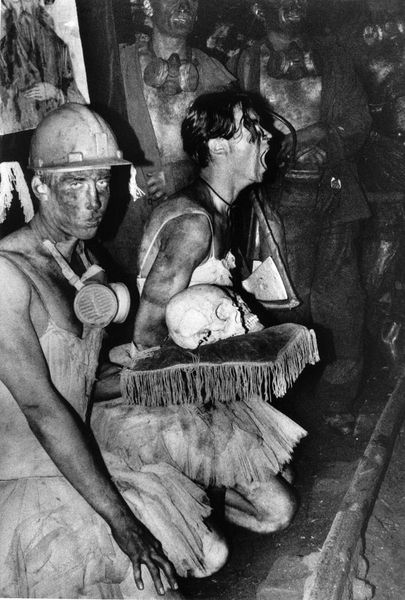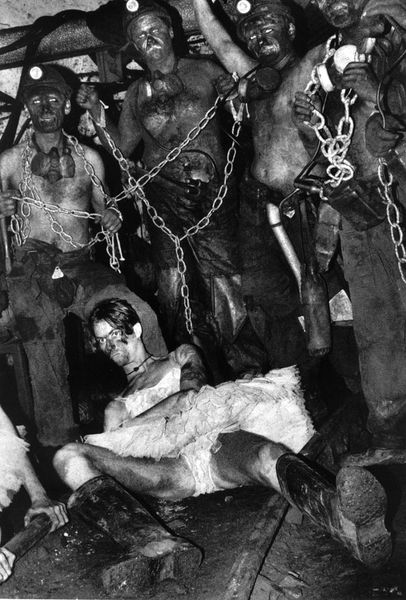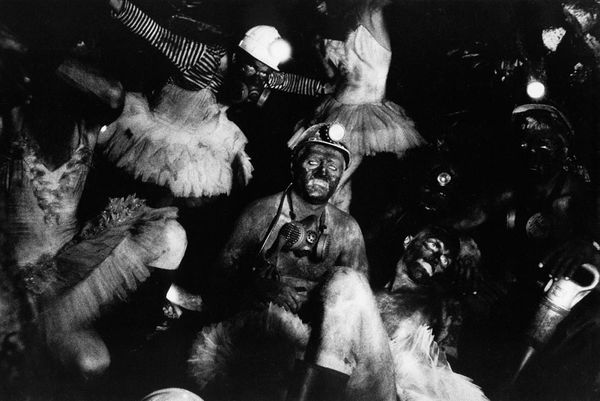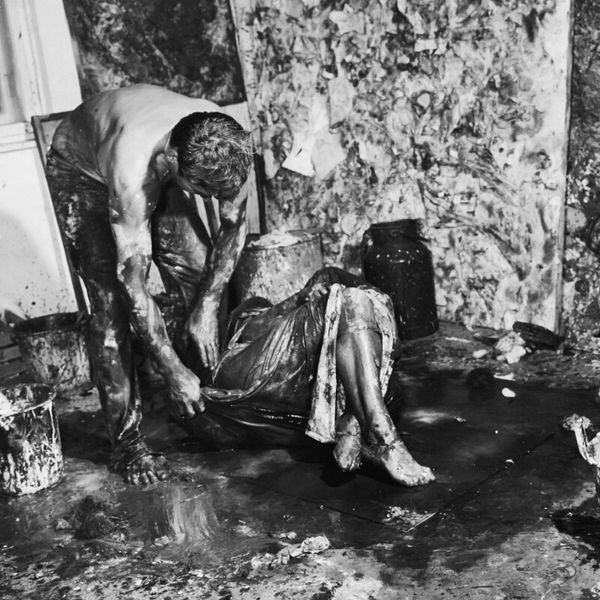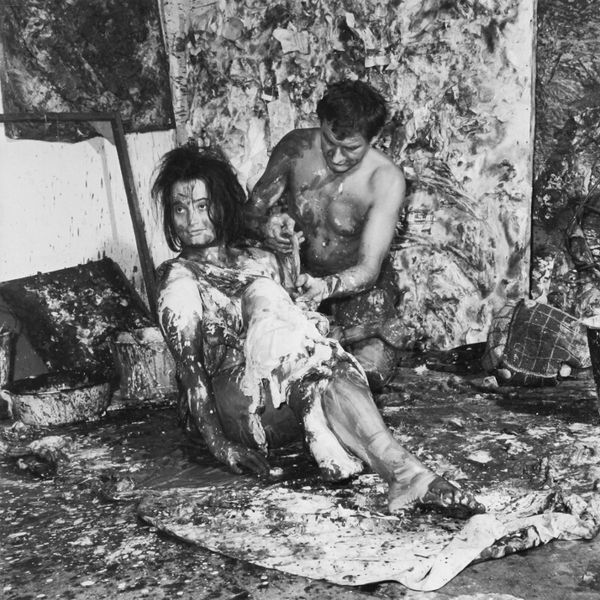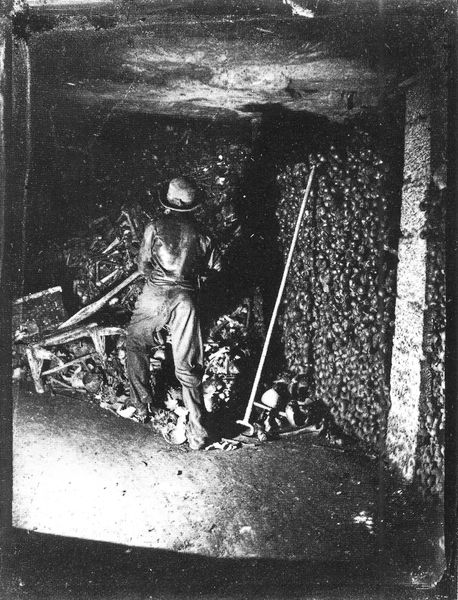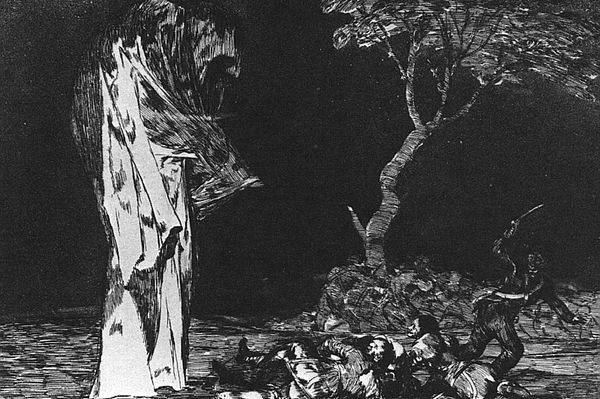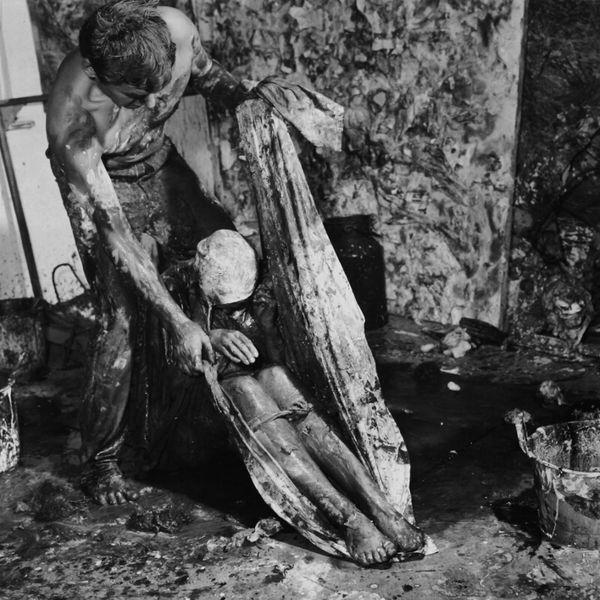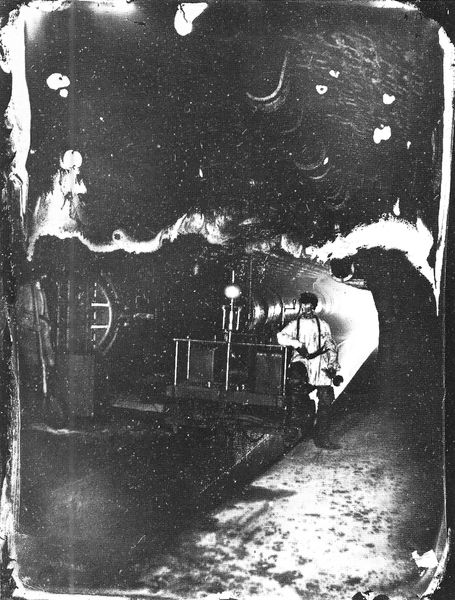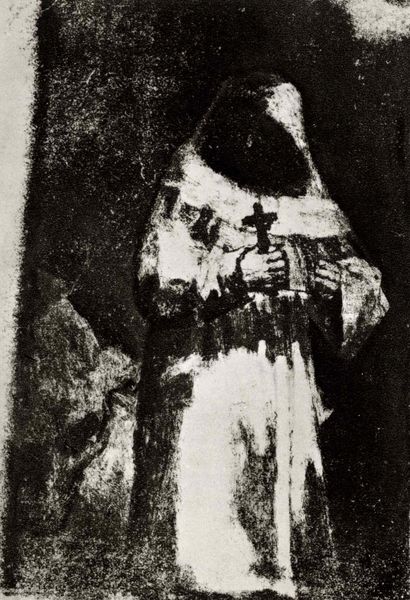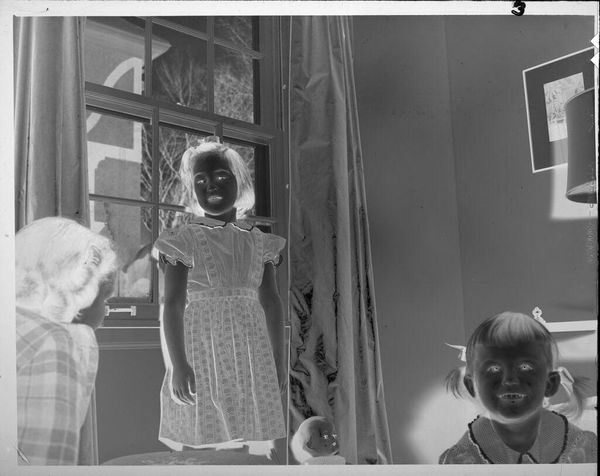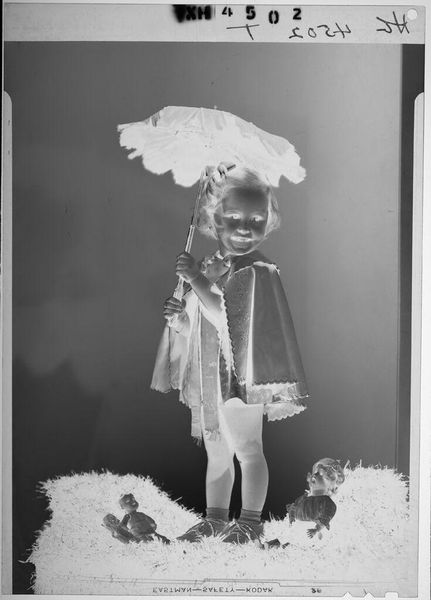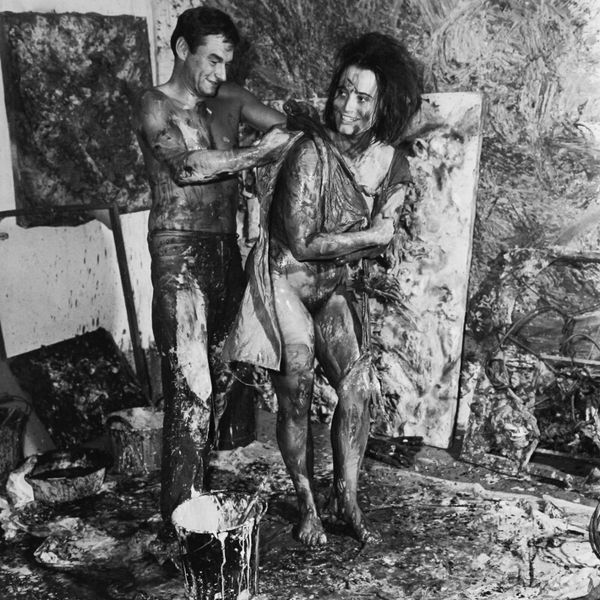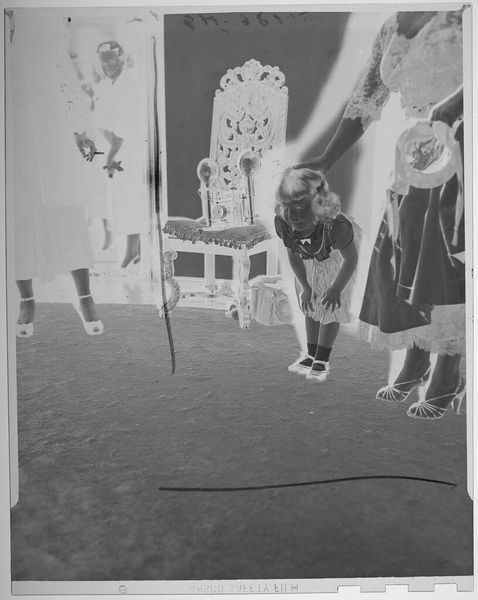
photography, gelatin-silver-print
#
portrait
#
contemporary
#
black and white photography
#
sculpture
#
black and white format
#
social-realism
#
photography
#
black and white theme
#
group-portraits
#
black and white
#
gelatin-silver-print
#
monochrome photography
#
monochrome
#
monochrome
Copyright: Arsen Savadov,Fair Use
Curator: Immediately, I’m struck by the contrast – the starkness of the scene and the softness of the ballerina's tutu. Editor: You’re referring, of course, to Arsen Savadov’s photographic work, "Donbass Chocolate" from 1997. It's a gelatin-silver print, part of a series he created in the Donbass region of Ukraine. What truly captivates me is how it uses these images to speak about labor. Curator: Absolutely, I find it incredibly evocative in that respect. The gritty materiality of the miners – the coal dust ingrained in their skin, their functional clothing – sets up a powerful dialogue with the seemingly out-of-place tutu and props. This work seems like a stage play that underscores tensions between industry and the ephemeral idea of “culture”. The choice of gelatin-silver print also contributes to the gritty, almost historical feel. Editor: Exactly. Considering the socio-political context of the 1990s in Ukraine is vital. The collapse of the Soviet Union brought about massive economic shifts, deeply impacting industrial regions like Donbass. We can see the echoes of socialist realism combined with an almost surreal tableau, commenting on the identity crisis and perhaps the theatricality of power during this transitional period. How does the use of black and white photography impact the overall interpretation of this piece? Curator: The decision to shoot in black and white adds a layer of timelessness but it also accentuates the dichotomy between the grimy conditions of the mine and the aspirational lightness represented by the ballerina. It reinforces the sculptural aspect as well. It abstracts the scene, allowing us to focus on the forms and textures, heightening the sensory experience of contrasting materials. Editor: And beyond that sensory experience, there’s also an institutional critique at play. Museums, galleries, even art itself, are placed within a context of socioeconomic change. Savadov compels us to consider who dictates value, who gets to define culture, and what roles different communities play in the performance of national identity. The symbols are important! Curator: I concur. "Donbass Chocolate" skillfully employs the unexpected juxtaposition to provoke thoughts about production, value, and the human condition. It transcends a simple representation and becomes a profound inquiry. Editor: A powerful image prompting reflections on work, art, and historical identity. It definitely gives one a lot to ponder about how societies reflect and reinvent themselves.
Comments
No comments
Be the first to comment and join the conversation on the ultimate creative platform.
